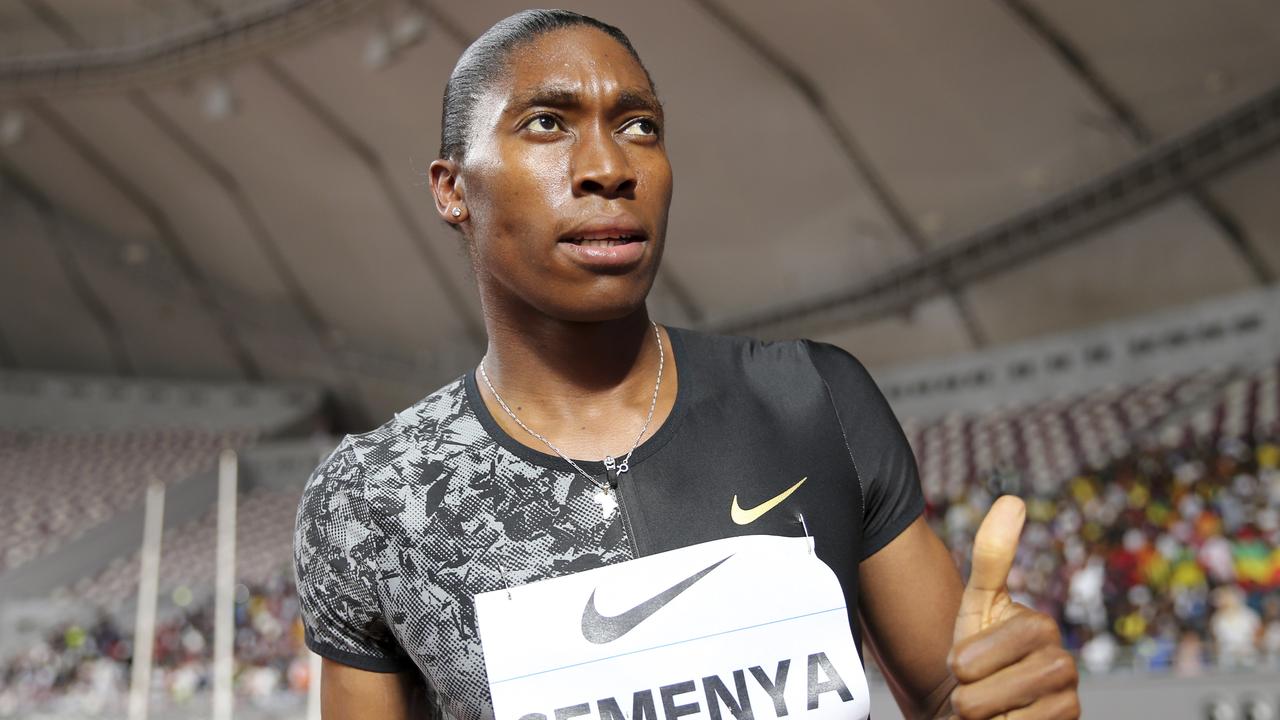Maria Sharapova shows Essendon how to deal with a drug scandal
If nothing else Maria Sharapova’s positive drug test at this year’s Australian Open has shown Essendon and their advisers how savvy sporting stars handle what is an indisputable bombshell.
Why she even had the time, the composure to register her disgust with the carpet in the room where she made her announcement. Commenting on the confusion over why she had called the media, she said: “If I was ever going to announce my retirement, it would probably not be in a downtown Los Angeles hotel with this fairly ugly carpet.” When you have earned nearly $40 million in prizemoney you get to say these things. Or if it is really ugly carpet you can say it but double check your minibar bill.
It was a slick Sharapova, 28, made even slicker by the sound advice given to her. It is one thing to get good advice but it only works if it is understood and embraced. Essendon seemed to be negotiating a resolution to their problem before heavy-handed administrators and players got involved.
Chairman David Evans left and Essendon descended into turmoil, listening to people whose best advice got the players 12-month bans and the stigma of drug cheats never to be removed. The Essendon Rambos set traps for themselves. Sneaky bastards.
In the NRL, the players and administrators took their orders from a group of people far more aware of ASADA’s workings and foibles and missed, in most cases, just three matches and their reputations have not been smeared. Ben McDevitt, who took over roughly in the middle of the inquiries, was prepared to do a deal recognising that any ASADA breaches may not have been deliberate but a breach of trust. That was Essendon’s last hope.
You could argue that Sharapova was done in by a positive test where none existed with Essendon or the NRL players. But in the Bombers’ case they had the equivalent and that was no idea of the name or nature of some of the drugs given to them.
Even though Essendon officials did not know what chemicals were injected into the footballers under their care — that is despite former chairman Paul Little saying otherwise, even while he was leaving the building — they never sought a negotiated outcome. Once that option was removed by the club and players then McDevitt let ASADA and WADA run the case and now the players’ fate will be decided by a Swiss court.
Sharapova is clearly angling for the most lenient result given she has a positive test. She faces a four-year ban and her best result might be somewhere around two.
At her announcement yesterday Sharapova took full responsibility. Did not point the finger at her manager, doctor, physio team or limo driver. Her toothpaste did not stand accused. She French-kissed no one the night before who had just shovelled eight tonnes of cocaine into his mouth.
She did not run the claim that her twin had left her with crazy red blood cell readings. Cyclist Tyler Hamilton gave that his best shot. Nor was she as unlucky as American sprinter Dennis Mitchell who had too much whiskey and too much sex with his wife the night before. His testosterone readings exploded. “It was her birthday. She deserved a treat,” Mitchell explained. There was no evil masseuse who rubbed her down with a lotion deliberately contaminated with a banned substance.
She shied away from the excuse that she had a wonderful but gassy Chinese meal for dinner the night before which prompted her manager to give her a pill to help with the bloating. A pill that turned out to be a diuretic. Nor was the veal she ate somehow laced with two kilos of nandrolone.
Wisely Sharapova did not lean on the excuse of former Texas linebacker Brian Cushing who said his irregular HCG hormone count was due to his fight against testicular cancer. Cushing did not have testicular cancer and it is widely hoped, for several reasons, that Sharapova doesn’t either.
In truth, if Sharapova was to retain her dignity she had no option but to go quietly. She has tested positive to the drug meldonium, illegal from January 1 this year but on the WADA watch list last year where it was found one in 50 athletes were using the drug. And no wonder. It is designed to help patients suffering angina by moving blood and oxygen more quickly and in that role is an obvious performance enhancer if abused.
“I let my fans down, I let the sport down that I have been playing since the age of four and I love so deeply. I know with this I face consequences and I don’t want to end my career this way and I really hope I will be given another chance to play this game,” Sharapova, winner of five grand slam tournaments, said.
The former No 1 player tested positive at the Australian Open where she lost in the quarter-finals to Serena Williams in straight sets. Meldonium will prove a costly treatment. Yesterday Nike suspended her sponsorship believed to be about $70m.
Tennis has suddenly had a restring of courage. It is tackling corruption and in reporting Sharapova’s drug failing they have put the spotlight on one of the most famous and recognisable faces in sport.
Then again, she might not be in as much trouble as we think. President of the Russian Tennis Federation Shamil Tarpishchev described the positive test as “nonsense”. And recent research has shown “nonsense” is the drug of choice for most Russian athletes and officials.




To join the conversation, please log in. Don't have an account? Register
Join the conversation, you are commenting as Logout